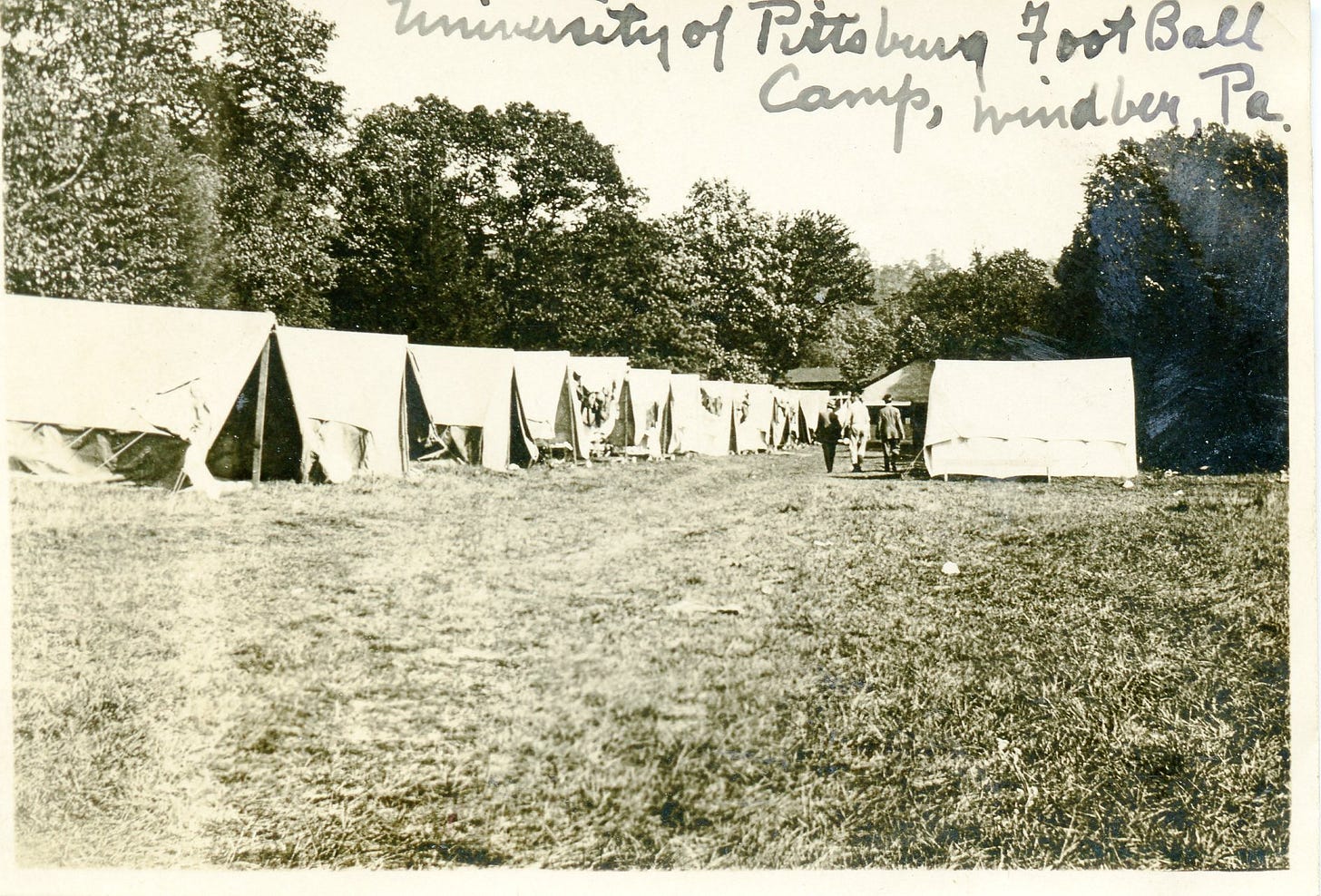Terminology... Training Camp
This is article #11 in a series covering the origins of football’s terminology. All are available under the Terminology tab above. My book, Hut! Hut! Hike! describes the emergence of more than 400 football terms.
Training camps have started in the NFL, and those for colleges and high schools are not far behind, so now is the time to look at the origins of football training camps.
Football seasons past began as they do today, with several weeks of preseason practice before the first game, but there were differences as well. First, before the 1960s, college football teams seldom started their seasons before October, so preseason training began in early September. Second, year-round conditioning was not yet a thing, so athletic teams (e.g., major league baseball) and individuals (e.g., boxers, cyclists) often spent the first portion of their practice time on conditioning. These conditioning practices often occurred in rustic locations lacking permanent facilities, so teams pitched tents at their training camps.

Remote training camps for college football started in the 1890s, with Nebraska being an early adopter. Soon, nearly every program was encamped before the season. The camps began with extended walks, runs, calisthenics, and non-contact drills such as falling on the football, all capped off by ample time spent at the swimming hole. Some teams moved on to regular football practices before breaking camp.

Perhaps the most notable accomplishment by a team in training camp came in 1906 when St. Louis University camped near Lake Beulah, Wisconsin. St. Louis U’s head coach, Eddie Cochems, used the training camp to test his ideas for the newly-legalized forward pass. Before returning to St. Louis, Cochems took his team one county north to play Carroll University, where Bradbury Robinson threw the first legal forward pass in a regular-season game. Unfortunately, it went incomplete, though several others were completed, including one touchdown pass, in a win for St. Louis.
Football Archaeology is reader-supported. Click here to buy one of my books or otherwise support the site.

